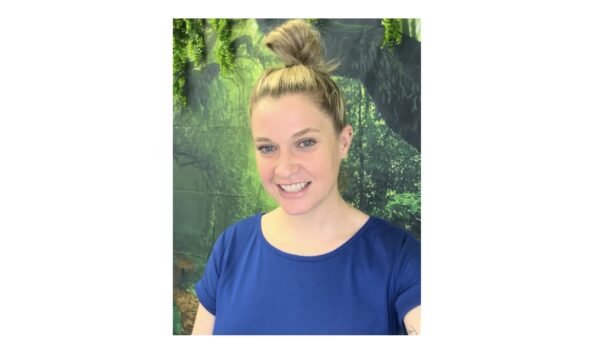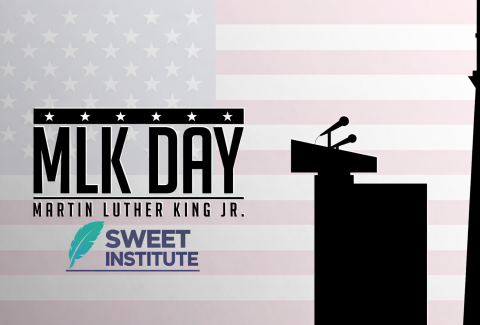Shannon Cullen, LCSW: Harnessing the Power of Social-Emotional Learning
In the ever-evolving landscape of education, the role of the school social worker has never been more crucial. Shannon Cullen, an accomplished Licensed Clinical Social Worker (LCSW) and the supervising school social worker at the Brooklyn Charter School, exemplifies this vital role. With over two decades of experience in various educational settings, Shannon has cultivated a profound understanding of the social-emotional needs of students and the importance of supporting teachers in navigating these challenges.
A Journey Rooted in Passion
Shannon’s journey into social work began in childhood, fueled by a desire to work with kids. Starting a babysitting camp at just 11 years old and later working at a sleepaway camp for children with disabilities, she realized her calling early on. Initially pursuing a career in school psychology while completing her undergraduate degree at New York University (NYU), Shannon shifted her focus to social work after witnessing the meaningful connections that school social workers build with students.
“I loved the one-on-one therapeutic work,” Shannon reflects. “I wanted to see students through their high school years, not just conduct brief assessments and pass them on.”
Upon completing her Master’s in Social Work at NYU, Shannon honed her clinical skills in a high school specifically designed for students with emotional disabilities. There, she immersed herself in crisis intervention, learning essential skills that would shape her future practice.
Innovations in Social-Emotional Learning
Now, as the Director of Social-Emotional Learning at the Brooklyn Charter School, Shannon has the opportunity to innovate and implement impactful programs. Over the past 13 years, she has developed a comprehensive social-emotional learning (SEL) curriculum that engages the entire school community.
“Every week, I create two lessons aligned with the CASEL competencies—self-awareness, self-management, relationship skills, social awareness, and responsible decision-making,” Shannon explains. “These lessons are integrated into the school week, allowing all students to benefit from social-emotional learning.”
Shannon’s dedication to enhancing student well-being extends beyond the classroom. She initiated a mentoring program to connect students with supportive adults and introduced the Chill Snowboarding Program in collaboration with Burton, providing students with unique opportunities for growth and adventure.
Challenges and Triumphs
Despite her successes, Shannon acknowledges the challenges inherent in her role. Often the only mental health professional in the building, she recognizes the importance of equipping teachers with the knowledge and skills needed to support their students effectively.
“Teachers are on the front lines of student well-being, yet many lack training in human development and mental health,” she notes. “Supporting them in managing their own emotions and understanding how these impact their students is crucial.”
Shannon has implemented professional development sessions tailored to teachers, sharing strategies she has learned through her own training. Her efforts have been met with enthusiasm, and she finds it rewarding to see educators utilizing these techniques in their classrooms.
The SWEET Institute Connection
Shannon’s commitment to ongoing learning extends to her involvement with the SWEET Institute. She values the training and resources provided by the institute, often applying new strategies in her practice.
“I’ve always learned something valuable from the SWEET Institute,” she shares. “The trainings give me actionable strategies I can implement immediately, which is incredibly beneficial in my work.”
Her appreciation for the SWEET Institute’s practical approach underscores the importance of accessible, effective professional development for mental health professionals in education.
A Vision for the Future
Looking ahead, Shannon is excited about the potential for walking talk therapy—an approach she finds particularly effective. “Being on the move creates a more relaxed environment for students to express themselves,” she explains. “I want to offer mental health support for teachers, too, allowing them dedicated time during the school day to process their emotions.”
In her free time, Shannon embraces the outdoors, finding solace and inspiration in nature. Her active lifestyle, which includes running marathons and snowboarding, reflects her belief in the therapeutic benefits of movement.
Conclusion: The Impact of Compassionate Care
Shannon Cullen embodies the spirit of compassion and innovation that is essential in today’s educational landscape. By prioritizing social-emotional learning and supporting both students and teachers, she creates a nurturing environment where all can thrive. As she continues her journey, Shannon’s dedication to the mental health and well-being of her community serves as a powerful reminder of the profound impact that a single individual can have on the lives of many.
Her work inspires others in the field to prioritize social-emotional learning and advocate for comprehensive support systems, making her a true leader in the world of school social work. Through her commitment, she not only uplifts her immediate community but also contributes to the broader discourse on mental health in education, reminding us all of the importance of connection, empathy, and continuous growth.
Shannon Cullen is a licensed clinical social worker with a Master of Social Work from NYU. With over 20 years of experience in the New York City school system, she specializes in the treatment of children and adolescents exhibiting symptoms of anxiety, depression, ADHD, ODD, IED, PTSD, and exposure to ongoing and complex trauma. Shannon provides clinical intervention to children as their families navigate grief and bereavement, ACS involvement, transitional and temporary housing concerns, foster care and adoption systems, and incarceration.







